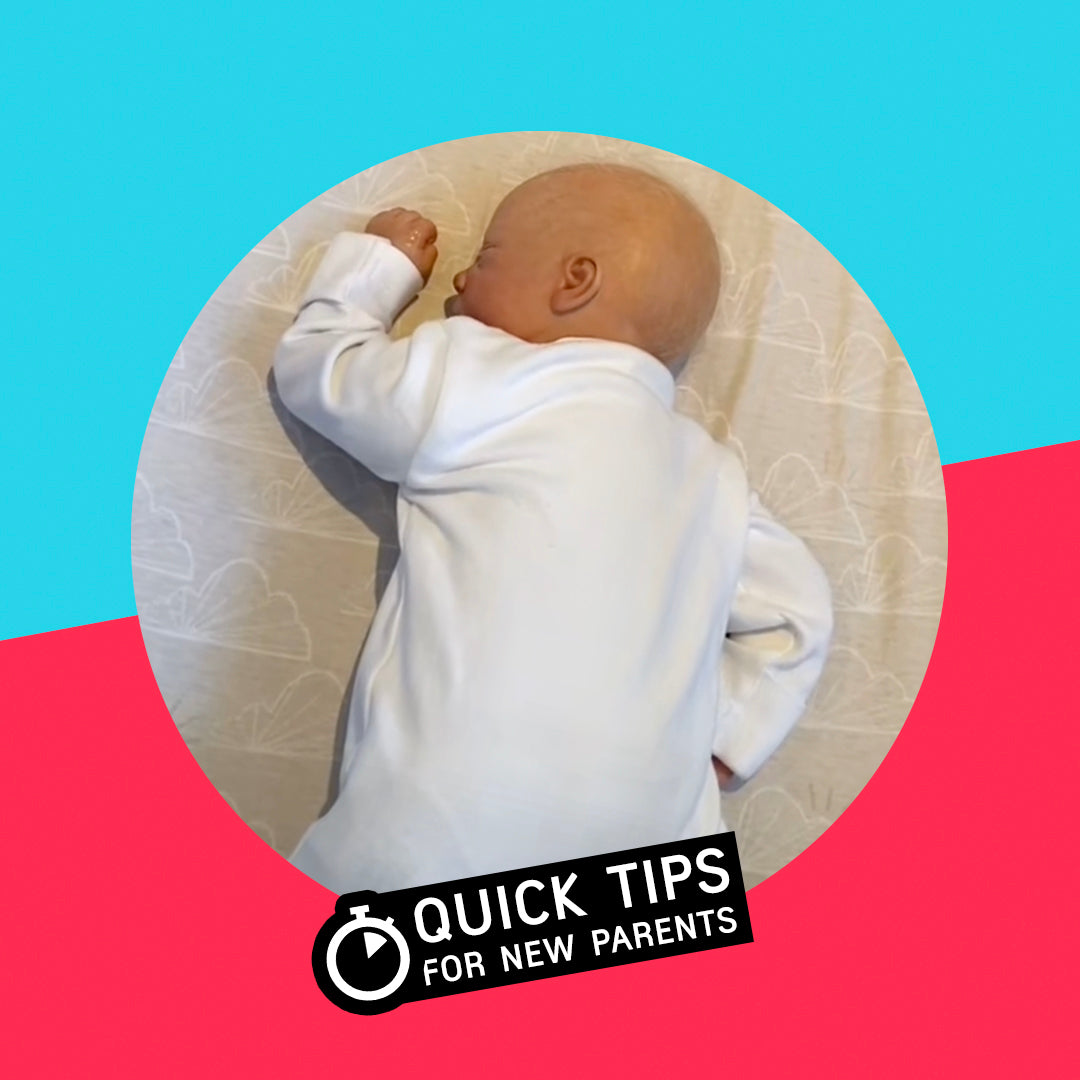Quick Tips for New Parents is our "channel" of bite sized advice for new or expecting parents. If you find this tip useful, why not check out our Tik Tok where we post similar videos daily.
The Answer In brief:
A viewer asked:
"Please could you give some advice for an almost 5 month old who rolls onto front every 5 minutes when he's asleep? Really worried about the risks."
Safe sleep advice is for you to always place your baby on their back as part of their sleep routine.
What happens when your baby starts to roll over onto their tummy during their sleep?
The first few times you may want to gently roll your baby onto their back. Don't feel like you have to stay up all night doing this.
Once your baby can roll from back to front, and roll back over again by themselves, they can be left to find their own sleep position.
* Disclaimer: the doll used in the video is used for demonstration purposes only and is way too small to roll over. Babies are normally 4-6 months old before they start to roll over.
The Answer In detail:
The journey of parenthood is filled with milestones, and one significant transition many parents encounter is when their baby starts rolling over during sleep. As your almost 5-month-old explores new movements, it's natural to have concerns about sleep safety. In this guide, we'll provide advice for parents facing the challenge of a baby who frequently rolls onto their front during sleep, emphasising the importance of safe sleep practices.
The Basics of Safe Sleep
Before delving into the specifics of rolling babies, let's revisit the fundamental principles of safe sleep:
-
Back to Sleep: Always place your baby on their back as part of their sleep routine. This position is recommended to reduce the risk of sudden infant death syndrome (SIDS).
-
Cot Safety: Ensure your baby sleeps in a firm and flat sleep surface. Remove any soft bedding, toys, or loose objects from the cot to create a safe sleep environment.
-
Bed-Sharing: While it's tempting to bring your baby into your bed, it's safer for them to sleep in their own cot or bassinet.
-
Sleep Clothing: Dress your baby in sleep clothing to keep them at a comfortable temperature. Avoid using loose blankets.
When Your Baby Starts Rolling Over
Around the age of 4-6 months, babies begin to develop the ability to roll over. It's common for parents to worry about the safety implications of this newfound skill. Here's some advice for navigating this phase:
-
Gentle Rolling: If your baby starts rolling onto their tummy during sleep and you're concerned, gently roll them back onto their back. However, it's not necessary to stay up all night doing this.
-
Self-Rolling: Once your baby can roll from back to front and back again independently, they can be left to find their own sleep position. This development typically occurs when babies are around 4-6 months old.
-
Create a Safe Sleep Space: Make sure the cot or bassinet is free of hazards, and adhere to safe sleep guidelines. This includes avoiding soft bedding and ensuring the sleep surface is firm and flat.
-
Observe Regularly: Keep a close eye on your baby during sleep, especially in the initial stages of them discovering their ability to roll. Regular monitoring provides reassurance and allows you to respond promptly if needed.
Navigating your baby's sleep transitions, such as rolling over, can be a source of concern for parents. By following safe sleep practices and staying attuned to your baby's development, you can create a secure sleep environment. Remember that each baby is unique, and while guidance is valuable, trusting your instincts as a parent is equally important. If you have specific concerns or questions, always consult with your paediatrician for personalised advice.












